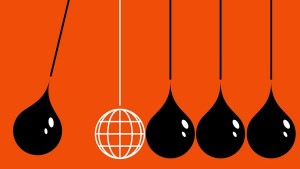Takeaways from the FT’s series on the impact of the crude price plunge
The Financial Times has been investigating what the plunge in the oil price since the summer of 2014 has meant for the industry, consumers and producers. Brent crude has more than halved since June last year, with the slide accelerating after Opec’s decision last November not to cut output, despite a US supply glut and weaker than expected demand in Asia.
The drop has inflicted massive pain on oil-exporting countries, widening budget deficits and weakening currencies. Energy companies have laid off an estimated 70,000 workers and scrapped projects worth billions of dollars, especially in high-cost areas such as Canada’s oil sands and the deepwater fields of the Gulf of Mexico.
The low oil price is reshaping the industry landscape: it drove Royal Dutch Shell’s $55bn takeover of smaller rival BG Group, and triggered the fall of Nigeria-focused oil explorer Afren, which entered administration last month. Dozens of other small oil companies are limping along, labouring under heavy debts and dwindling cash flows.
Venezuela, a country whose crude oil accounts for 96 per cent of export revenues, and that loses $700m for every dollar drop in the oil price, typifies the difficulties oil exporters face. Amid slumping revenues, its cash reserves now stand at a 12-year low of $15.4bn, according to central bank data, and there are fears that the coffers could run empty in the first quarter of 2016.
But even Canada, a much wealthier country, is being squeezed. Economists are scaling back forecasts of future production, and Fort McMurray, the Albertan boomtown that was once nicknamed “Fort McMoney”, is seeing leaner times, with workers laid off and projects shelved. Unemployment in Alberta’s oil sands has doubled and councils are cutting their budgets.
It is not all bad news. Lower oil prices have benefited consumers, leading to lower petrol prices. The windfall is worth more than $200bn for the US, eurozone, UK and Japan, according to a report by Capital Economics in May, although so far there is little evidence that consumers are spending much of their spare cash. However, in the US, sales of gas guzzlers such as SUVs are up, and the country is seeing something of a renaissance in motoring.
 Fianzas y Seguros CRYA
Fianzas y Seguros CRYA

